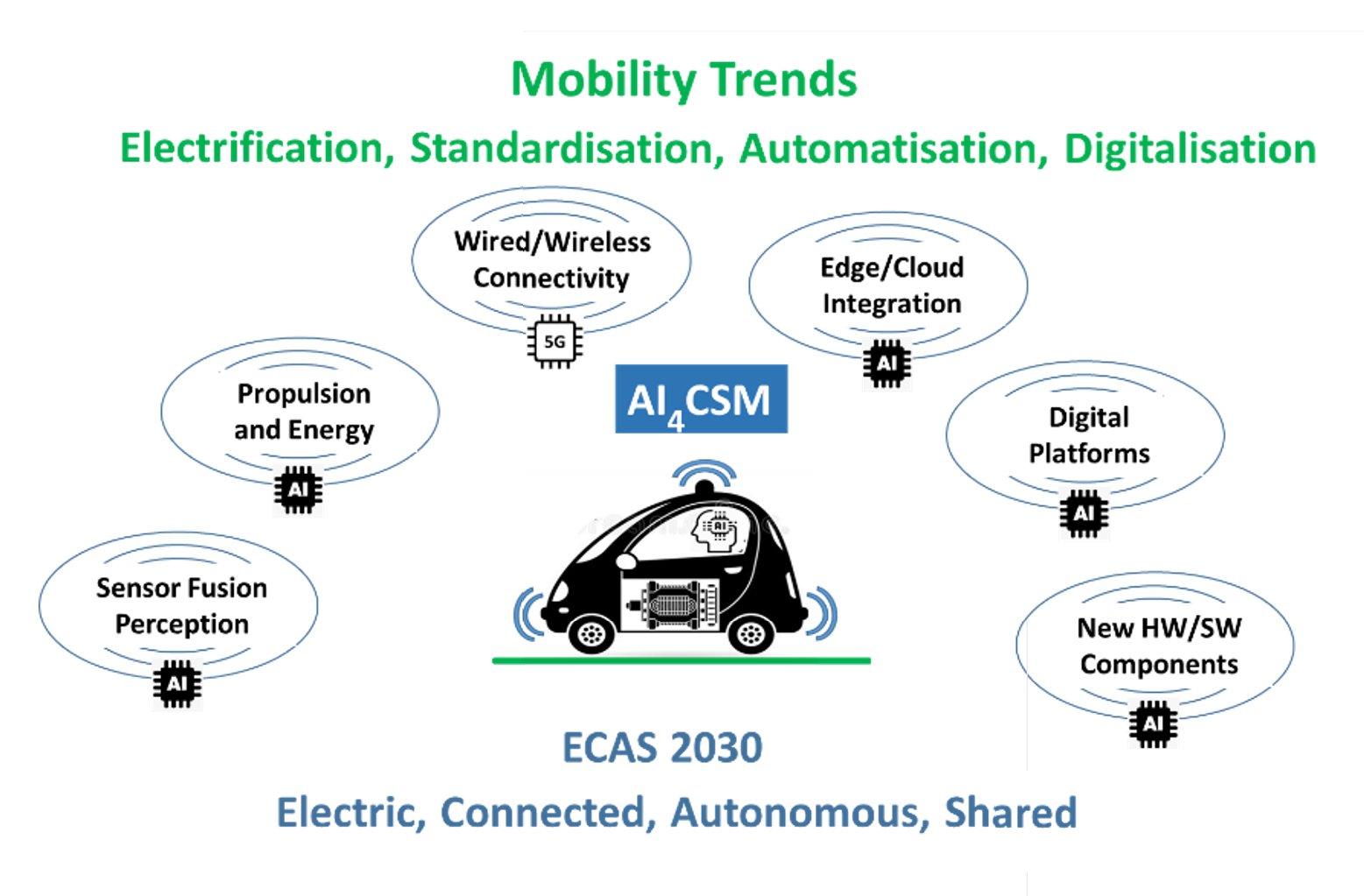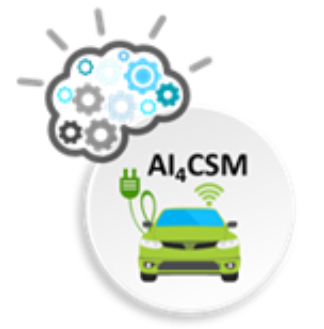Automotive Intelligence for Connected Shared Mobility (AI4CSM)
Reaching a climate neutral European economy by 2050 is feasible from technological, economic and social perspectives, but it requires the implementation of deep societal and economic transformations throughout the next generation. On Dec 2019, the European Commission presented “The European Green Deal” – a roadmap for making the EU's economy sustainable by turning climate and environmental challenges into opportunities across all policy areas and making the transition just and inclusive for all. President Ursula von der Leyen stated, “The European Green Deal is our new growth strategy – for a growth that gives back more than it takes away”.
AI4CSM sets its foundations on those visionary and strategic documents and directly contributes to a Clean, Connected and Shared Mobility. Consequently the development of a new generation of ECS will enable the “decarbonisation of the transport sector by using alternative means of transport, connected and automated driving combined with the roll-out of electric vehicles and enhanced use of alternative fuels”.
Moreover, the growing urbanization as key societal trend needs novel concepts of mobility, which will be gained by digital technologies connecting traffic and resources via high autonomy and automatization of vehicles in the urban environments. Developing novel mobility platform needs alternative paradigms in terms of resource efficiency and sustainable productivity, to decouple the economic growth from the exploitation of resources, and to transform itself towards a green circular economy. The major challenge for Europe's industry is to be competitive with the worldwide leading manufacturers in terms of intrinsically robust, scalable and standardized EVs (Electric Vehicle) and AVs (Automated Vehicles) for the upcoming mass market based on electronic components and systems (ECS) technologies providing usability for the customer base in Europe. The design of highly optimized and automated components for digital mobility allows smart and energy efficient fleet operations in terms of smart routing and platooning achieving low latency in the vehicle intelligence and perception systems. This means not only smart sensor fusion, but also reducing the level of complexity by using functional architectures and trustable automotive artificial intelligence (AI), to foster Europe's competitiveness in the global automotive market. The position and goals of AI4CSM are captured as follows:
Vision: Build Europe’s intelligent electronic component and systems for ECAS 2030 vehicles supporting European mass market production, manufacturability and scalability based on the Green Deal principles (incl. Vision Zero and Safe System) to address the sustainable urbanization challenge defined by the United Nations.
AI4CSM will realize the novel architecture and ECS in electrical vehicles needed when electro mobility becomes mainstream, which means more that 50% of the vehicles are driven by electrical propulsion, with a drastically increased need for autonomy and connectivity driving the digitalisation to foster mobility as a service and connected shared operation.
Mission: Develop the functional architectures for next generation EVs based on ECS, embedded intelligence and functional virtualization for connected and shared mobility using trustworthy AI. This mission applies on different mobility sectors, including the automotive and semiconductor sector as well as the society.
In this respect AI4CSM aims to enable the future mobility developments following the electrification, standardisation, automatization and digitalisation implementation strategy by providing new AIenabled electronic component and systems for ECAS vehicles for advanced perception, efficient propulsion and batteries, advanced connectivity, new integration and platform concepts and intelligent components based on trustworthy AI.
For more information, see the
project homepage.

Project data
| Researchers: | René van Leuken |
|---|---|
| Starting date: | May 2021 |
| Closing date: | May 2024 |
| Funding: | 41000 kE; related to group 160 kE |
| Sponsor: | EU ECSEL RIA |
| Partners: | Innatera Nanosystems BV, TU Delft, NXP Semiconductors (The Netherlands) |
| Contact: | René van Leuken |